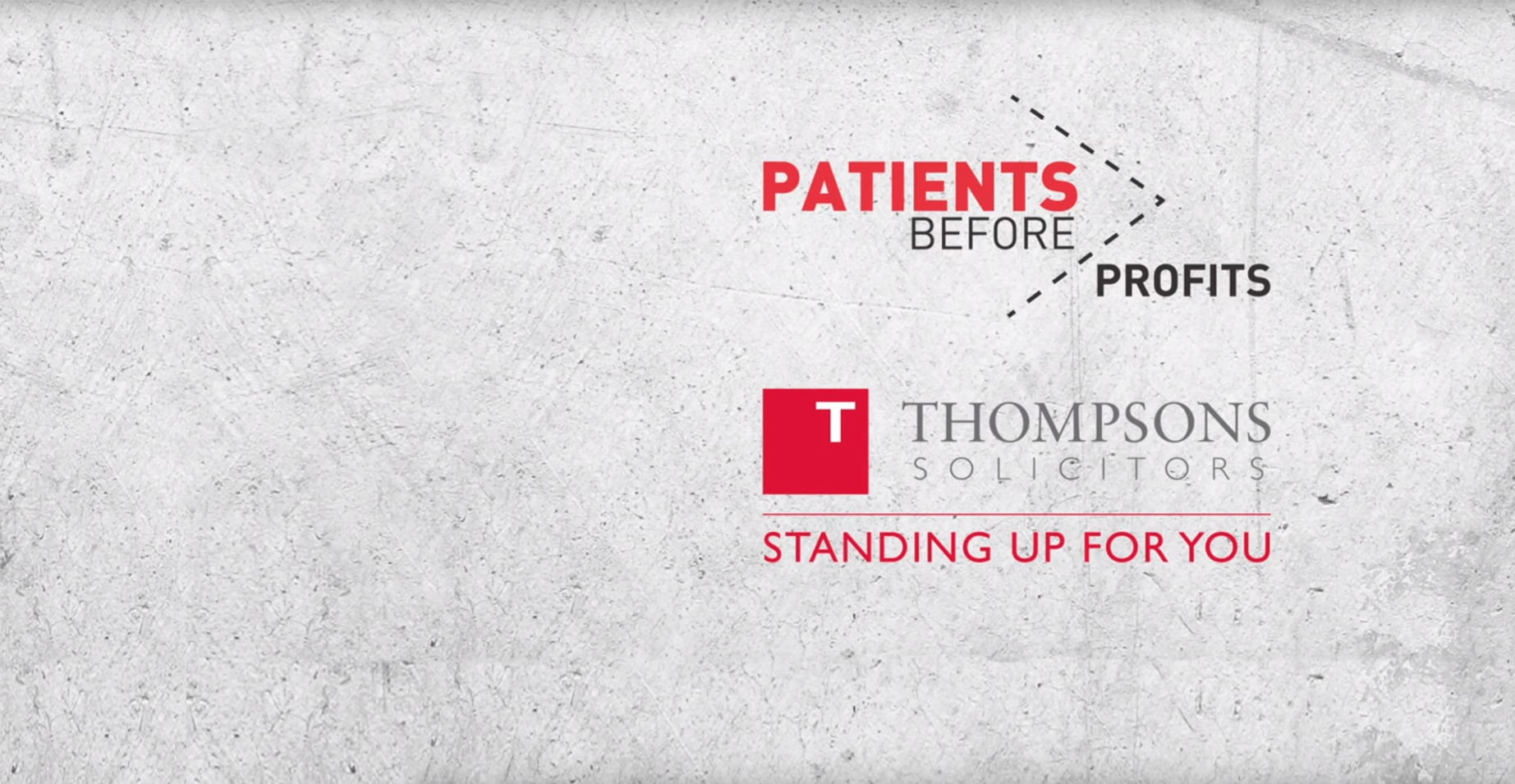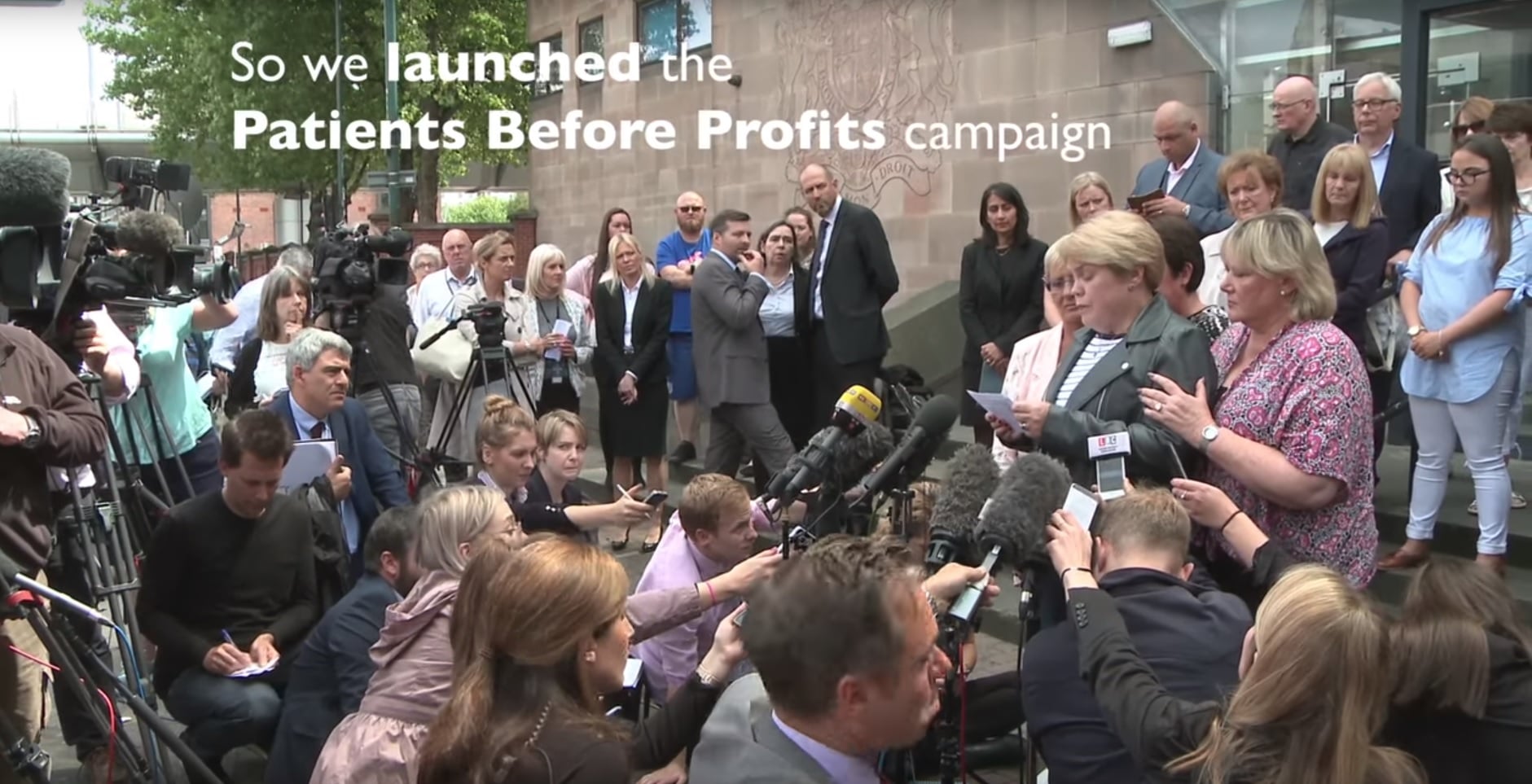

Patients Before Profits: An integrated campaign to raise awareness of a legal loophole
Freshwater was asked by Thompsons Solicitors, a long-standing client, to help raise awareness of a dangerous ‘liability loophole’ that risked leaving privately-treated patients with fewer legal rights than those afforded to NHS patients.
We needed to mobilise an integrated campaign at speed to take advantage of news coverage of a high-profile criminal case. The campaign also needed to involve people who had first-hand experience of the issue, and garner their support to ensure it had a strong, authentic edge.
Brief
In April 2017, consultant surgeon Ian Paterson was sentenced to 15 years in prison after carrying out needless operations on a number of women. Campaigning law firm Thompsons Solicitors had led the civil case against him since 2012, representing hundreds of patients who received guideline-breaching or unnecessary breast surgery at private, and NHS, hospitals in the West Midlands.
While pursuing the cases against Mr Paterson, Thompsons identified a ‘liability loophole’ that it argued was allowing a private healthcare provider to shirk its legal responsibility towards patients, as a means to avoid paying compensation to them. Thompsons asked Freshwater to develop a campaign to raise awareness of the issue that could be launched once Mr Paterson’s sentence was handed down. The aim was to ensure privately-treated patients were afforded the same level of legal protection as those treated by the NHS.
Page one Google rankings secured for Paterson-related keywords
1.2 billion
media opportunities to see from 326 coverage hits
Independent inquiry
announced by the Department of Health
Delivery
Freshwater devised a distinct identity for the campaign – #PatientsBeforeProfits – to highlight the need to place patients’ rights above the commercial interests of privately-owned hospitals. Central to the campaign’s message was demonstrating how private providers fell short of the standards of accountability being upheld by NHS organisations, and how stricter regulation should be applied to private providers to ensure patients were better protected.
A dedicated #PatientsBeforeProfits campaign hub was added to the Thompsons website and populated with campaign graphics, a series of videos featuring patient, fact sheets and advice on where privately-treated patients could seek legal advice.
The campaign was officially launched to the media on the steps of Nottingham Crown Court when the verdict in the Ian Paterson case was handed down. Backed by several patient case studies, the launch resulted in a significant UK-wide media splash and led to a follow-up BBC Panorama documentary on systemic problems in the private healthcare sector.
Social media was used to galvanise public support and increase pressure on the government to look into the issues raised by the campaign. This included a Twibbon campaign backed by paid-for social media adverts to target users following the case, or those citing an interest in social justice.
Separately, Thompsons and the patients it represented also wrote to the Department of Health to raise the issue, and push for a discussion on the issue.

Results
More than 3,100 people visited the dedicated web page in the first two weeks of campaign activity. Thompsons was the only law firm to rank on the first page of Google for keywords relating to Ian Paterson, cementing its position as the leading legal authority on this specific issue.
Social media advertising across Twitter and Facebook generated almost 4,000 shares and reactions.
Thompsons’ campaign dominated the news agenda around Ian Paterson. We secured 26 pieces of high impact national media coverage, over 300 pieces of quality, regional coverage and two feature-length documentary opportunities. In total, over 1.2 billion opportunities to see were created by the proactive media strategy.
In December 2017, the government announced it would conduct an independent inquiry into the Ian Paterson issue. The terms of the inquiry will look at potential systemic failings which allowed him to continue to practice and undertake private work despite concerns raised by colleagues and a suspension by the NHS trust at which he had been based.
